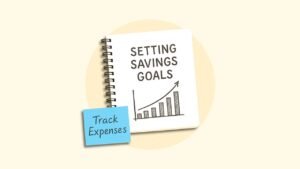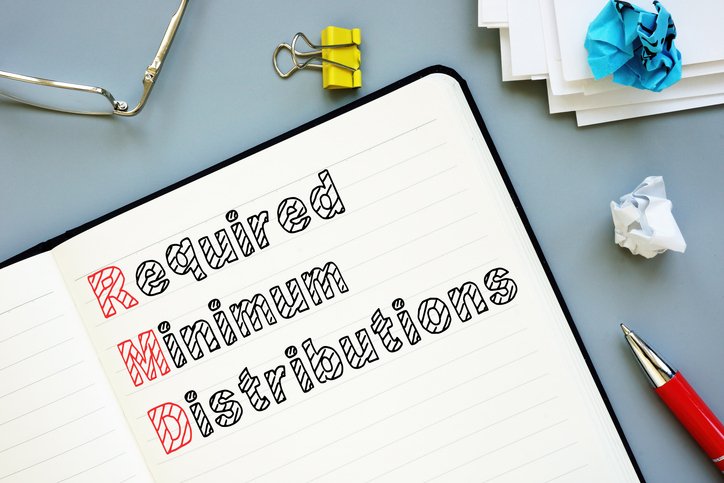Retirement accounts like 401(k)s come with specific rules. One of the most important, required minimum distributions (RMDs), dictate when you must start withdrawing money. But when you reach the age typically associated with these mandatory withdrawals, what happens if you still work? The RMD for a 401(k) follows different guidelines for those who work than it does for retirees.
A financial advisor can provide additional insights into retirement plans and the strategies that best fit your long-term goals.
How RMD Rules Work for a 401(k)
RMDs are mandatory withdrawals that retirement account owners must take from their tax-advantaged retirement accounts, including 401(k)s. These distributions typically begin when you reach age 73 (as of 2023). However, this age is subject to change due to legislative updates. The IRS requires these withdrawals to ensure retirement funds don’t remain tax-deferred indefinitely.
To calculate your RMD amount, divide your 401(k) account balance as of December 31 of the previous year by a life expectancy factor provided by the IRS. These factors, found in IRS Publication 590-B, decrease as you age. This results in larger required withdrawals over time. Each 401(k) plan requires its own separate RMD calculation.
For most 401(k) owners, the first RMD occurs April 1 of the year following the year you turn 73. Subsequent RMDs must be taken by December 31 of each year. Be careful with your first distribution. Delaying it until April means you’ll need to take two distributions in the same tax year. This could potentially push you into a higher tax bracket.
Does Working Impact When You Must Take RMDs?

When you reach age 73 it triggers RMDs from your retirement accounts. However, if you’re still punching the clock at your current employer, you might qualify for what’s known as the “still-working exception” for your 401(k) plan at that company.
This provision allows you to delay taking RMDs from your current employer’s 401(k) until April 1 of the year following your retirement, regardless of your age. This can be particularly valuable if you’re in a higher tax bracket while working and expect to drop to a lower bracket after retirement.
The still-working exception only applies to your current employer’s 401(k) plan. Any 401(k) accounts from previous employers or traditional IRAs are still subject to RMDs beginning at age 73, even if you’re actively employed elsewhere. Additionally, if you own more than 5% of the company where you work, you cannot use this exception.
How to Create a 401(k) Withdrawal Strategy
Before making any withdrawals from your 401(k), take time to evaluate your financial situation. Consider your monthly expenses, other income sources, and how long your retirement savings need to last. This assessment forms the foundation of your withdrawal strategy and helps determine how much you’ll need to withdraw regularly.
The IRS taxes 401(k) withdrawals as ordinary income, which can significantly impact your tax bracket. Consider spreading withdrawals across tax years or combining them with years when you have higher deductions. Some retirees find it beneficial to work with a tax professional to create a 401(k) withdrawal strategy that minimizes their overall tax burden.
Many financial experts recommend withdrawing from taxable accounts first, then tax-deferred accounts like traditional 401(k)s, and finally tax-free accounts like Roth IRAs. This sequence can help maximize tax efficiency and potentially extend the life of your retirement savings.
Coordinate your 401(k) withdrawals with other income sources such as Social Security, pensions, or part-time work. This comprehensive approach ensures you’re not withdrawing more than necessary and potentially preserves your retirement savings for longer.
Finally, your withdrawal strategy shouldn’t be static. Review it annually or whenever significant life changes occur. Adjustments may be necessary based on changes in your health, lifestyle, market conditions, or tax laws. Regular reviews help ensure your strategy remains aligned with your retirement goals and financial circumstances.
Bottom Line

If you’re still working past age 73, understanding what the RMD for a 401(k) is if you still work becomes crucial for retirement planning. The good news is that many employees can benefit from the “still working” exception, which allows you to delay required minimum distributions from your current employer’s 401(k) plan until you retire. This exception applies only to your current employer’s plan—any 401(k)s from previous employers or traditional IRAs will still require distributions.
Tips for Retirement Planning
- A financial advisor can help you put together a long-term financial plan and help you align your finances with your retirement goals. Finding a financial advisor doesn’t have to be hard. SmartAsset’s free tool matches you with vetted financial advisors who serve your area, and you can have a free introductory call with your advisor matches to decide which one you feel is right for you. If you’re ready to find an advisor who can help you achieve your financial goals, get started now.
- Consider utilizing a retirement calculator to help you estimate how much money you might need for the retirement you’re wanting to live in the future.
Photo credit: ©iStock.com/Andrii Dodonov, ©iStock.com/pinkomelet, ©iStock.com/brizmaker
Read the full article here
















